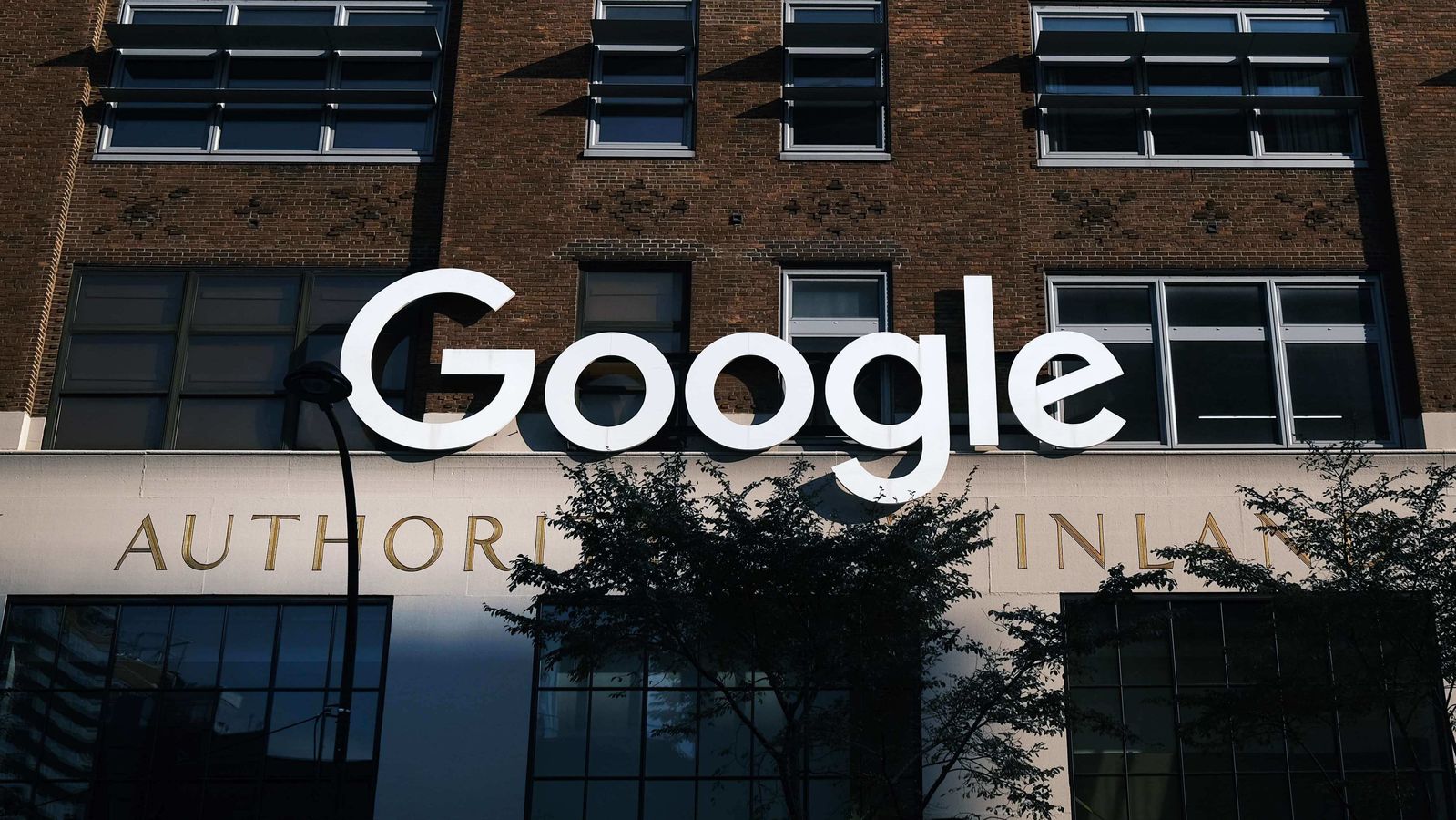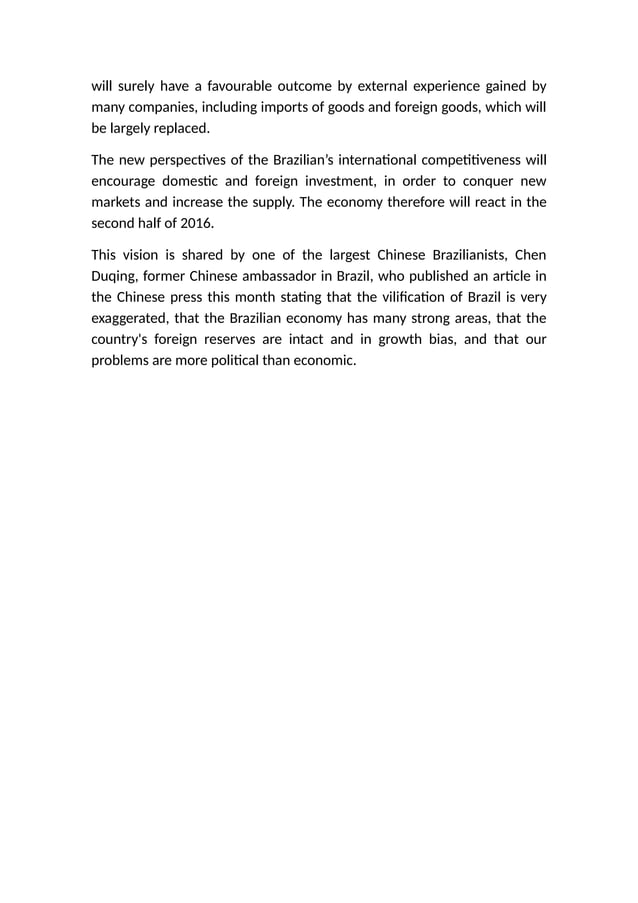Is Google Facing Its Biggest Threat Yet? A Potential Breakup

Table of Contents
The Antitrust Arguments Against Google
Regulators worldwide are increasingly scrutinizing Google's business practices, citing concerns about monopolistic behavior that stifles competition and harms consumers. The core arguments against Google center on its dominance in key markets and its alleged use of anti-competitive strategies.
Dominance in Search
Google holds an overwhelming market share in the global search engine market. This dominance, critics argue, allows Google to manipulate search results to favor its own products and services, disadvantaging competitors.
- Preferential Treatment: Google allegedly prioritizes its own services (like Google Maps, Google Shopping, and YouTube) in search results, even when competing services might offer superior results.
- Pre-installation on Android: The pre-installation of Google apps on Android devices, which holds a significant share of the global smartphone market, gives Google an unfair advantage over rival apps.
- Data Collection: Google leverages its vast data collection to personalize search results and advertising, further strengthening its dominant position and creating a barrier to entry for new competitors.
Statistics show Google's search market share consistently exceeds 90% in many countries, illustrating the scale of its power and the potential for abuse.
Dominance in Advertising
Google's advertising empire, primarily through Google Ads and AdSense, controls a massive portion of the online advertising market. This dominance raises concerns about its ability to manipulate prices and limit choices for advertisers and consumers alike.
- Market Control: Google's ad platforms effectively control the flow of online advertising revenue, limiting the ability of smaller advertising networks to compete.
- Data-Driven Advantage: Google leverages its vast data stores to target ads with unparalleled precision, creating a competitive advantage that's difficult for rivals to match.
- Algorithmic Opacity: The complexity and opacity of Google's advertising algorithms make it challenging for advertisers to understand how their campaigns are performing and to effectively compete.
This dominance restricts advertiser choices and can lead to inflated prices, ultimately impacting consumers.
Concerns Regarding Data Privacy
Google's vast data collection practices, while fueling its dominance, are also a major focus of antitrust concerns. The sheer volume of data Google collects raises significant privacy concerns and questions about the ethical implications of its power.
- Data as a Competitive Weapon: The data Google collects is not only used for personalization but also forms the basis of its advertising business model, creating an insurmountable barrier for competitors lacking equivalent data.
- Lack of Transparency: The extent of Google's data collection and its uses are not always transparent to users, raising questions about informed consent and user control.
- Regulatory Scrutiny: Increasingly stringent data privacy regulations, such as GDPR and CCPA, are challenging Google's data practices and contributing to the antitrust debate.
Potential Outcomes of a Google Breakup
A forced Google breakup, if it were to happen, would have far-reaching consequences. While a significant undertaking, it could reshape the competitive landscape in numerous ways.
Increased Competition
Breaking up Google could foster increased competition in various markets. This increased competition would potentially benefit consumers.
- Emergence of New Players: A breakup could create opportunities for new search engines, advertising platforms, and other services to emerge and compete effectively.
- Innovation Boost: Increased competition can stimulate innovation, leading to better products and services for consumers.
- Market Diversification: A less dominant Google would lead to a more diversified market, reducing the risk of single points of failure and market manipulation.
Impact on Consumers
The impact on consumers would be multifaceted. While a breakup could lead to more choice and potentially lower prices, it could also create short-term disruptions.
- Potential Benefits: Lower prices for advertising and potentially improved search results due to increased competition. More choices in search engines and online services.
- Potential Drawbacks: Initial market fragmentation might lead to some confusion and inconvenience as users adjust to new platforms. The process of breaking up a massive company is inherently complex and could lead to unexpected problems.
Challenges of a Breakup
Breaking up a company as large and complex as Google presents immense practical challenges.
- Technical Hurdles: Separating Google's interconnected services and infrastructure would be a massive technological undertaking.
- Legal Complexities: The legal battle surrounding a breakup would be lengthy and costly, involving extensive litigation and regulatory hurdles.
- Economic Fallout: The breakup could have significant short-term economic consequences, impacting Google's employees, investors, and the broader economy.
The Future of Search and Advertising Post-Breakup (Speculative)
Predicting the precise future of search and advertising after a Google breakup is speculative, but several scenarios are possible.
The market could see a rise of alternative search engines, potentially benefiting from increased competition and user dissatisfaction with Google's dominance. Similarly, advertising platforms might become more diverse, offering advertisers a broader range of choices. However, this diversification could also lead to fragmentation and increased complexity for both advertisers and consumers. Expert opinions vary widely, with some predicting a rapid shift towards a more decentralized landscape, while others forecast a more gradual evolution.
Conclusion
The potential for a Google breakup represents a significant turning point in the tech industry. The arguments against Google's monopolistic practices are compelling, highlighting concerns about stifled competition, compromised consumer choice, and potential data privacy issues. While a breakup presents considerable challenges, the potential for increased competition and innovation could ultimately benefit consumers in the long run. A less dominant Google might mean more choice, better innovation, and a more balanced digital landscape.
What do YOU think? Is a Google breakup inevitable? Share your thoughts on the potential implications of a Google breakup in the comments below!

Featured Posts
-
 Bof A Reassures Investors Why Current Stock Market Valuations Arent A Threat
Apr 22, 2025
Bof A Reassures Investors Why Current Stock Market Valuations Arent A Threat
Apr 22, 2025 -
 Auto Dealers Double Down On Resistance To Ev Sales Requirements
Apr 22, 2025
Auto Dealers Double Down On Resistance To Ev Sales Requirements
Apr 22, 2025 -
 Dealerships Intensify Fight Against Electric Vehicle Mandates
Apr 22, 2025
Dealerships Intensify Fight Against Electric Vehicle Mandates
Apr 22, 2025 -
 Selling Sunset Star Exposes La Landlord Price Gouging After Fires
Apr 22, 2025
Selling Sunset Star Exposes La Landlord Price Gouging After Fires
Apr 22, 2025 -
 Saudi Aramco And Byd A New Ev Technology Partnership
Apr 22, 2025
Saudi Aramco And Byd A New Ev Technology Partnership
Apr 22, 2025
